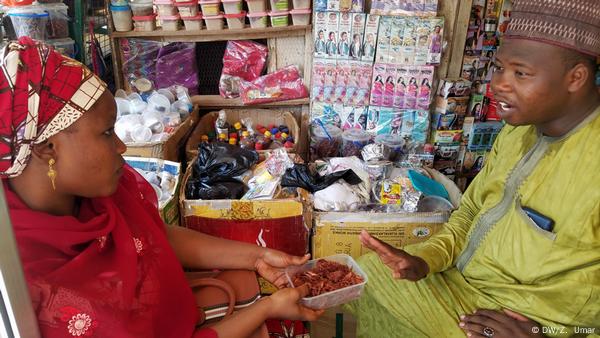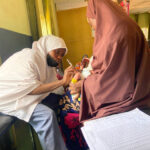A new craze for biohacking is taking root in Nigeria, marked by the plethora of herbal aphrodisiacs and anti-ageing drips, amongst others.
Nigeria today is defined by a growing obsession with personal health and vitality. Self-optimisation, once a fad of Silicon Valley, is becoming a common refrain in public discourse across most Nigerian cities.
Nigerians are increasingly seeking ways to enhance their productivity, longevity and attractiveness through what’s referred to as “biohacking.”
Biohacking itself is an umbrella term encompassing everything from dietary interventions (fasting, special diets), supplementation (vitamins, nootropics), hormonal or metabolic tweaks, anti-ageing procedures to the use of herbal aphrodisiacs and aesthetic enhancements.
Central to biohacking is a desire to control and upgrade the body, often outside the formal healthcare system.
Social media has amplified this trend. Influencers routinely showcase glowing skin transformations and promote sexual enhancement tonics. Even global wellness narratives spread beliefs that ageing and fatigue can be delayed with the right intervention.
“Every week I see patients who want to fix something in their biology,” says Amina Bello, an endocrinologist in Gwagwalada, Abuja. “Too many want shortcuts, but the body doesn’t always work that way.”
Of the many forms of biohacking in Nigeria, aphrodisiacs is the most culturally entrenched. From herbal tinctures sold in plastic bottles at motor parks to food-based enhancers like tiger nuts and honey blends, aphrodisiacs come in many different stripes, reflecting prevailing beliefs about masculinity and sexual performance.
The statistics paint a striking picture. In the Sokoto metropolis, for instance, 67.6% of adults admitted to using aphrodisiacs, with nearly half having used them within the past month.
Among male students in Ekiti State College of Health Sciences and Technology, 75.8% reported consuming aphrodisiac foods. In Ile-Ife, a study found that 87.5% of bus drivers had used aphrodisiac drinks at some point.
A large-scale survey has, similarly, shown that a lot of adults use traditional sexual enhancement medicines.
“There’s enormous pressure on men to perform, and that fuels aphrodisiac use,” explains Yusuf Ahmed, a specialist in internal medicine at the UNIABUJA specialist hospital.
Ahmed stresses the long-term risks of this cultural trend. “Many of these products raise blood pressure, alter sugar levels and, in the long run, damage the very organs needed for healthy sexuality.”
Beyond traditional aphrodisiacs, Nigeria is witnessing the surge of a sophisticated wellness industry that markets itself as the frontier of biohacking.
Clinics in Lagos and Abuja now offer intravenous vitamin drips, Nicotinamide Adenine Dinucleotide (NAD+) therapy, glutathione infusions, personalised nutrition routines and medical-grade facials.
A clinic in Wuye, Abuja, describes itself as a “beauty center,” promising cellular-level anti-ageing treatments, therapeutic fasting and mindset coaching. These biohacking services, though often priced beyond the reach of the average Nigerian, are gaining popularity among the elite, influencers and professionals seeking to maintain a competitive edge.
The rise of these clinics signals a cultural shift in how Nigerians view health: not as the absence of illness but as an investment in beauty, performance, and social credibility. For some, biohacking inspires a flattering feeling that they belong to a global wellness culture.
“There’s nothing wrong with wanting to feel better, but many treatments are marketed as cures without solid scientific backing,” remarks Bello, the endocrinologist.
The perils of biohacking
The surging desire for self-optimisation drives a shadow market of unregulated products, which creates significant health risks. In Ile-Ife, bus drivers who frequently consumed aphrodisiac drinks were found to have significantly higher blood pressure and blood sugar levels, conditions that predispose them to hypertension and diabetes.
In northern Nigeria, 20.7% of users of traditional aphrodisiacs reported side effects ranging from persistent headaches to hospitalisation. Chemical analyses of some herbal mixtures revealed heavy metals such as cadmium and lead, which over time can damage the kidneys and liver.
The danger lies also in the lack of regulation when it comes to dosage. Users rarely know how much is safe or what combinations might trigger toxic reactions. While some report short-term improvements in stamina or libido, the long-term effects can be devastating.
“They never knew what was inside. No batch number, no expiry date, no proper dosage, yet they trusted it because someone said it worked for them,” says Bello, who’s treated many such patients with complications from herbal medicine.
The rapid growth of self-optimisation practices in Nigeria has outpaced regulatory capacity. The National Agency for Food and Drug Administration and Control (NAFDAC) has repeatedly warned about unregistered herbal aphrodisiacs and bitters, some of which can be lethal if misused.
Yet many of these products continue to flood the market, sold in open-air stalls, pharmacies or even advertised online.
In the absence of strict oversight, manufacturers make claims of curing erectile dysfunction, boosting fertility or reversing ageing, often without scientific validation. Social media marketing further complicates regulation, as influencers promote products to thousands of followers without disclosing potential risks.
“If a product can change your blood pressure or heart rate, it should not be sold without proper trials and approval,” warns Ahmed, the internal-medicine doctor. “But enforcement is weak and the public pays the price.”
Despite these challenges, biohacking in Nigeria does hold promise. Traditional herbal knowledge, when validated through clinical trials, could yield safe and affordable remedies for common health challenges.
Evidence-based interventions like personalised nutrition, stress management and regulated anti-ageing treatments can reduce the burden of chronic disease and improve quality of life.
With proper policies, Nigeria could even emerge as a leader in blending modern wellness culture with Africa’s rich heritage of traditional medicine. Ensuring that innovation does not outpace safety is crucial to this ideal.
“Wanting to live longer, feel stronger or look younger is human,” Ahmed adds. “But our responsibility as doctors is to remind people that health is not a shortcut. It is built day by day, with evidence, patience and discipline.”
The rising interest in biohacking in Nigeria reveals deeper insights. It reflects the pressures of performance in a competitive society, the anxieties of ageing in a youthful culture and the influence of global wellness narratives on local practices.
Through whatever means possible, Nigerians are chasing vitality and control, not minding the risks.
Summary not available at this time.






